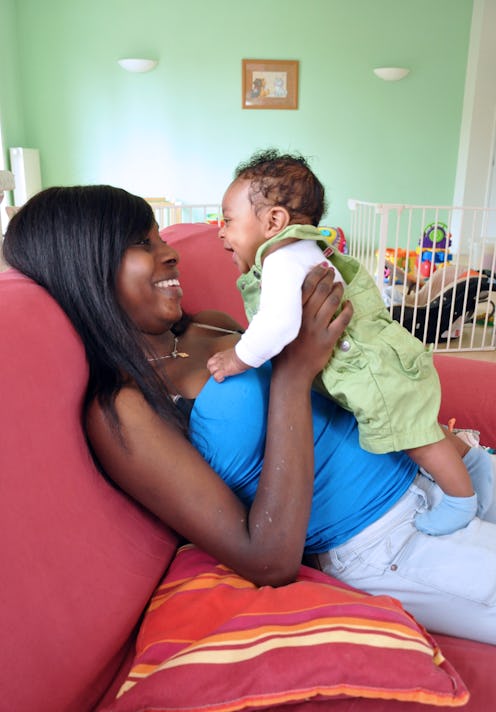News
The Risk of Having Babies When You're Over 30
Are you over 30? As if that big birthday wasn't painful enough, here's some bad news: Children's autism rates accelerate when the mother is over 30 years old. So, if you have a baby now, his or her chances of having autism may be higher than they were before you were 30 — and that risk is climbing by the year. According to new research done in collaboration between American and Swedish researchers, parental age, and especially maternal age, is related to children's later diagnoses of Autism Spectrum Disorder accompanied by intellectual disabilities.
The researchers were able to use rigorous methods because they were looking at Swedish families:
"[they] analyzed a large population registry sample of 417,303 children born in Sweden between 1984 and 2003, adjusted for numerous possible factors that could vary with parental age and also influence risk, such as family income and each parent's psychiatric history. The study also used a particularly comprehensive case-finding approach, to identify more ASD cases than other studies might, based on all pathways to care in a socialized health system."
Because of Sweden's socialized health system, the autism researchers could adjust for a number of related factors and missed diagnoses, and they knew that the mothers had received adequate pre-natal care. They found that paternal age is related to autism risk, but it increases slowly and evenly through the life of a father-to-be. On the other hand, maternal contribution to autism risk is very low in mothers under 30, but then increases "non-linearly" (read: very rapidly!) in mothers over 30.
Don't be too worried, though. Although the absolute risk of autism does rise rapidly in children born to mothers over 30, the relative risk is still fairly low. The heightened autism risk amounts to an increase from about 1 percent to 2 percent of babies, born to mothers under 30 and to mothers up to age 45, respectively. Additionally, as a writer at Scientific American points out in connection with previous autism and pregnancy findings, it could also be that older mothers are more likely to seek a diagnosis for their developmentally troubled children. That might make older mothers look artificially more likely to give birth to autism-afflicted babies, when in reality it's just that some of the younger mothers' babies are going undiagnosed.
You may find some solace in the fact that tons of things have been "linked" at one time or another to autism, because the disorder is not yet well-understood. Then again, that is also cause for despair. With more and more American women giving birth to children later in life, even small increases in autism risk could have big social effects down the road. Let's hope that increasing public awareness of autism will lead to better preventative measures and treatments in the future.
